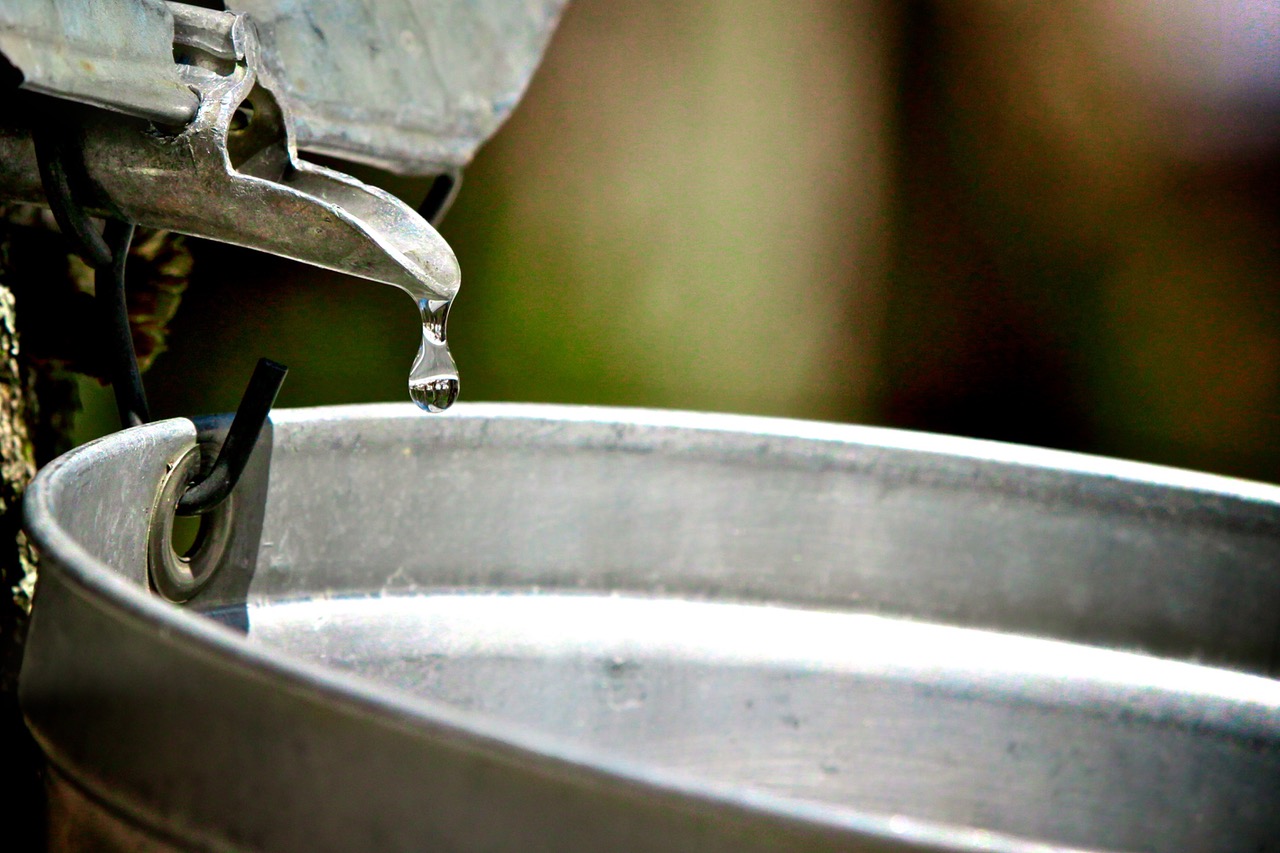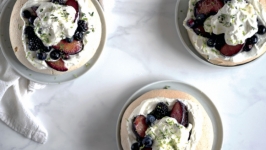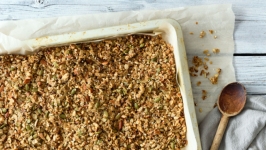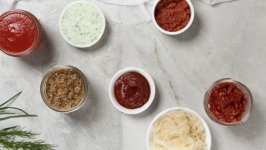From Sweet and Sticky to Cool and Refreshing
Before it becomes the sweet, sticky syrup we love to pour over pancakes, maple trees have a healthy, hydrating treat to share.
Barely sweet with a hint of vanilla and surprisingly refreshing, the watery sap is filtered naturally as it passes through the tapped tree in early spring. It’s now being sold by a variety of companies as a nutrient-packed alternative to water, including Flesherton based Sapsucker Maple Tree Filtered Water.
The cheekily named Sapsucker — for the small woodpecker who also likes to sip sap — uses yield collected from Ontario trees from Beaver Valley to Guelph.
With 46 minerals and antioxidants, it’s not surprising maple sap has been dubbed Canada’s coconut water.
But Sapsucker’s Nancy Chapman, founder of Lower Valley Beverage Company, says while there are similarities, the thin, colourless sap differs from the tropical sip.
It has fewer calories and “half the sugar” of coconut water, she says, with five grams of sugar in a 250-millilitre serving.
“We get just what Mother Nature gives us,” Chapman says, adding that it’s impossible to predict yields or harvest dates with accuracy. “We never take more than we need.”
This is the pre-syrup liquid, which would be boiled down to create the thick, rich, smoky-sweet stuff that’s synonymous with Canada. Before it undergoes this heat transformation, it comes from the tree in watery drips.
“Surprisingly, even some Canadians don’t know maple syrup doesn’t come from a tree; that there is a product before you boil it down,” Chapman says.
Like her husband Paul, Chapman was born and raised in Grey County’s Beaver Valley. The Chapman family has a small stand of maple trees, known as a sugar bush, that produces enough sap for syrup to fill her pantry with mason jars as the snow starts to melt.
“In the spring, you get to enjoy the fresh sap and we’d share it with our friends,” says Chapman, 37. They decided they’d like to share the experience.
Since launching Sapsucker three years ago, the product is already in 400 to 500 retailers nationally, including Whole Foods Market beginning in 2015. It later expanded to Farm Boy, The Big Carrot, The Healthy Butcher and Pusateri’s Fine Foods, to name a few.
Chapman and her family use maple water in place of tap water. They sip it instead of water or sports drinks for “a boost of hydration.” She likes it with Canadian whisky in a cocktail or made into lemonade. Boiling the sap for tea or putting it through a coffeemaker adds a bit of natural sweetness as some of the water evaporates. The same goes for making oatmeal or soup.
It’s a preservative-free product from a sustainable source and tapping doesn’t harm the trees.
Sapsucker is sold in eco-friendly Tetra Pak cartons and the 50 Toronto and Beaver Valley restaurants serving Sapsucker get glass jugs with Sapsucker logos to use for tableware.
Chapman says maple water pairs exceptionally well with food and chefs have embraced it as a local alternative to sparkling water for the table. “Sap has been used as a palate cleanser by chefs for years,” she says. “It’s hard to explain how well it cleanses your palate between each bite."
When it comes to collecting sap, it's as temperamental as a soufflé. Chapman says there is a three-to-six-week harvest window each spring during which time they have just 36 to 48 hours to get each day’s collected sap to Tetra Pak Canada in Etobicoke before the sap spoils.
She jokes that she doesn’t sleep during the spring sap season.
Sapsucker is quickly pasteurized to remove any natural bacteria and make it shelf stable for up to three years. Once opened, it will last for 14 days.
With the current popularity of all things maple, there are plans to expand Sapsucker’s market to Asia and the U.K., while growing the product line to include naturally flavoured maple waters and other tree saps, starting with birch.
The harvest is sustainable because many maple trees are still untapped, Chapman explained. Sapsucker buys “a small percentage” of the yield from the province’s sugar bush owners and farmers.
The company will stick with Ontario trees because, like wine, maple sap has a terroir.
“It does have a different taste, so we will only use Ontario sap,” Chapman says.
They also decided to buy from local farmers instead of acquiring more land as the business grows.
“We support local farmers, which is a great part of our business. They can generate revenues by keeping their trees vertical and not having to clear the land to farm,” she says.
Lower Valley Beverage Company
P.O. Box 36, Flesherton, Ont.
sapsucker.ca, info@sapsucker.ca








